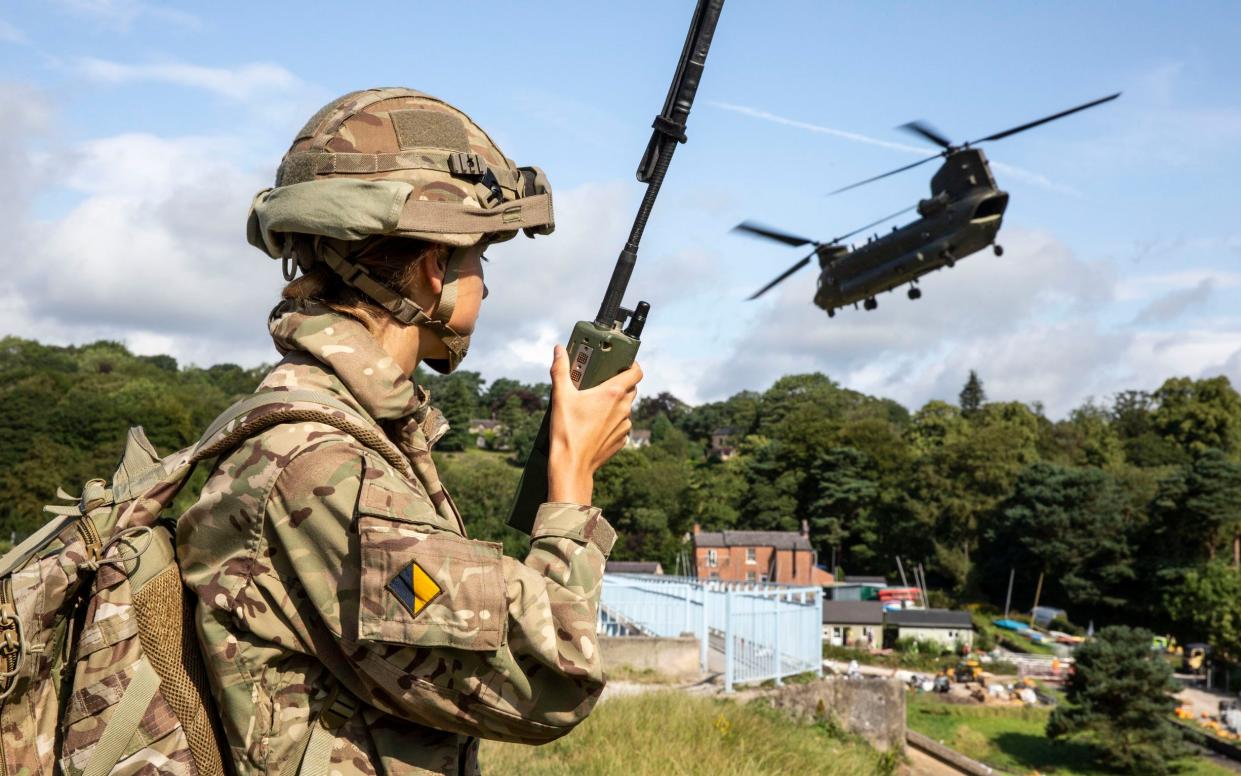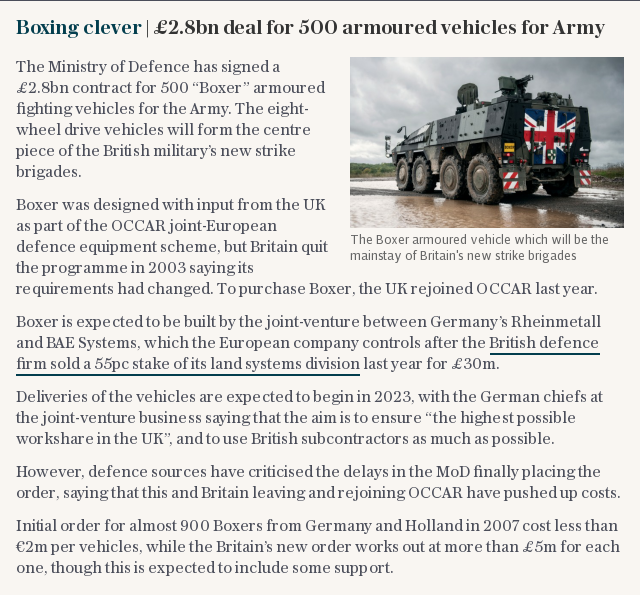'Drip feeding' military funding is not sustainable, top MoD civil servant warns

'Drip feeding' military funding is not sustainable, a top civil servant in the MoD has warned, as the Public Accounts Committee was told that equipment and training programmes will have to be reduced to stay within budget.
Sir Stephen Lovegrove, the Permanent Secretary of the Ministry of Defence, told the PAC that in order for the department to deliver on the defence capabilities it was committed to, more “secure” funds were required.
When asked by Sir Bernard Jenkin, chairman of the Liaison Committee, how much “drip feeding from the treasury keeps costs down”, Sir Stephen said: “I would much much prefer to have a stable, secure, funding line in the medium term because that would allow for us to plan better and for us to give instructions to the front line commands to plan better as well.”
Sir Stephen said there was “no question or dispute and hasn’t been for the last three of four years that the defence budget is out of balance”, as he added that having had an extra £1 billion from the Treasury for the last three years was “probably indicative of a systemic” problem within the budget.
It comes after a National Audit Office earlier this year found that the budget for kit was unaffordable for the third successive year and that the effect of continual saving cuts had resulted in kit not being repaired.
The Government’s spending watchdog concluded that as a result Britain’s armed forces equipment "is in managed decline".

Meanwhile Charlie Pate, the Director General of Finance at the MoD said he was already “reducing spend on infrastructure, reducing training exercises, decisions on specific capabilities to live within the budget”.
Sir Geoffrey Clifton-Brown, Treasurer of the Conservative’s 1922 committee, suggested that the answer to something that is over budget would be “to cut out some of the items rather than try and deliver everything”.
Sir Stephen cautioned that while he “would very much like to do that”, such an attempt was made in 2010 and “the consequence of that was that it became a slightly incoherent programme”.
“We are very much looking forward to a moment at which we can look strategically against the background of the government’s overall foreign, defence and security policy and make those big muscle moves that you are talking about,” he said.
Tobias Ellwood, Chairman of the Defence Select Committee, told The Daily Telegraph that “a thorough stock check of the growing threats we face versus our military strength to counter them would reveal a significant short fall in our capabilities”.
“Year on year erosion of land sea and air budgets have seen the size of our armed forces shrink, our global footprint reduced and our equipment upgrades cut,” he said.
“To compound matters, the changing nature of conflict tilting into domains of space and cyber places additional pressures on the defence budget.”
He cited the UK’s main battle tank being more than 20 years old, as well as “our fast jet squadrons are down from 36 in the gulf war to six today, and with no extra funding to pay for our carrier build, maintaining and updating a sizable maritime fleet has been a struggle”.
Mr Ellwood cautioned that after coronavirus “the geo-political landscape will look a lot more dangerous”. “We can ill afford to drop our guard. Our national security depends on our economic security and vice versa. Let’s not learn the hard way about the dangers of poorly funded defence.”


